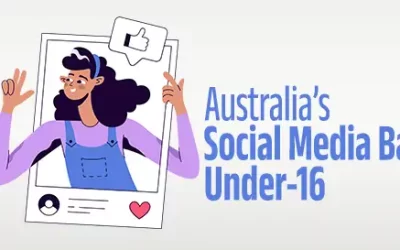Digital marketing for healthcare has become crucial as more number of people now go online to find reliable solutions for their medical problems. In fact, patients typically search for providers and their credentials online before making a decision to visit a healthcare practice. With huge information available online, hospitals, physicians and other healthcare entities are beginning to recognize the importance of social media in improving the patient experience. Healthcare providers now use social media marketing techniques to reach or connect with patients. Reports suggest that around seven in ten Americans use social media to connect with one another, engage with news content, share information and entertain themselves.
Social media provides a unique opportunity for patient engagement and spreading the word about your medical business online. Whether you’re starting a new practice or just looking to expand your patient base, social media should be part of your practice marketing strategy. With the right strategy in place, physicians have the most to gain by properly using social media to market their practice, share their years of experience and chime in on discussions with colleagues in the industry. In spite of this massive social media immersion, these platforms haven’t witnessed much penetration within the medical industry. The big question that still remains is – how can physicians use social media effectively to interact with patients and improve the care they provide?
Here are some ways physicians can use social media –
- Advertising availability – Social media platforms can be used for posting general office hours and the practice’s availability for appointments. Medical practices can update social media pages and profiles with office contact information and hours where in more patients will be visiting. For existing patients, these pages can link to appointment scheduling software or websites, or secure websites where they can log in to view their medical information.
On the other hand, for new patients the convenience of being able to find office hours or contact numbers could possibly make a difference between making an appointment at one doctor’s office instead of another. Further, social messaging apps and telemedicine websites enable patients to receive treatment, without the need for face-to-face appointments. - Provide Information to Patients – Most patients resort to social media when it comes to asking questions about specific medical symptoms and financial queries. In fact, more number of people receives breaking news updates from social media than from other news outlets. As per reports, in 2016, “62 percent of U.S. adults said they consumed news through social media, with 18 percent of adults saying they rely on social media for news “often. Healthcare professionals can capitalize on social media users by providing reliable information through sites like Facebook, Instagram, Twitter and YouTube.
- Providing Anonymity – Social platforms have become extremely popular and valuable tools for patients who require support for their medical condition or diagnosis, especially for those people who seek support anonymously. These social platforms and applications are convenient for people to start seeking treatment.
- Use Visuals – Generally, visuals resonate more with people than just text. Hence, medical practices need to incorporate more images with your social updates on LinkedIn, Twitter and Facebook. When sharing content, use original content, free stock footage or non-copyrighted photography in order to boost your posts. Also, add the photos used in the blog posts, articles or videos you are posting about on these networks.
- Strive for accuracy – When it comes to healthcare field, there is high amount of misinformation online. As a physician, it is important to strive for accurate coverage and discussion about the information you decide to share on social media. Focusing on publishing unique, good-quality and relevant content online is important for medical website marketing. Avoid interactions with illegitimate accounts and connection on social media as this could affect the credibility of your healthcare practice in the long-run.
- Build patient-relationships – Social media is all about building relationships, whether sharing valuable content or answering questions patients post on your pages. Respond to questions, comments, and reviews, and provide thoughtful feedback (when required). There can be chances where in medical practices receive negative reviews or feedbacks. Learn to handle these bad reviews discreetly. Try not to respond online, but instead take the conversation offline and connect with the patient over the phone or in person. Ask for regular feedbacks from patients.
- Share updates services and promotions – While posting general updates or sharing useful articles, let your patients know about any special services/promotions or new treatment options offered at your practice. Use these tips to create individual social media strategies that helps market your practice, and drive engagement with your patients.
- Improve patient interaction – Social platforms provide a good way for physicians to keep in touch with patients, and potentially bring new patients into the office at the same time. For a patient, in many cases the hardest thing is to get in touch with the physician (especially when you need to ask important questions). Social media can build a new level of interaction between medical professionals and their patients. Even if physicians can’t be accessible all day long due to their tight schedule, there are several other ways they can use social media to interact with patients such as –
- Office hours – set up scheduled hours to answer questions directed at a Facebook or Twitter page.
- Social media team – Physicians who receive a lot of traffic on social media sites may at times assign a staff person to handle or respond to these postings.


The impact of social media is growing every day, wherein its quite hard to find any business now that doesn’t have some form of social media presence. Patients have unprecedented access to their physicians, especially through technology-based means – a large part of that is social media. Healthcare professionals can take their medical practice to the next level by taking advantage of established social platforms to reach potential patients. Refusing to embrace these online platforms could ultimately harm their medical practice. Younger tech-savvy patients expect to see their physicians online. If they don’t, they may choose to leave your practice for one that has a more robust online presence.




